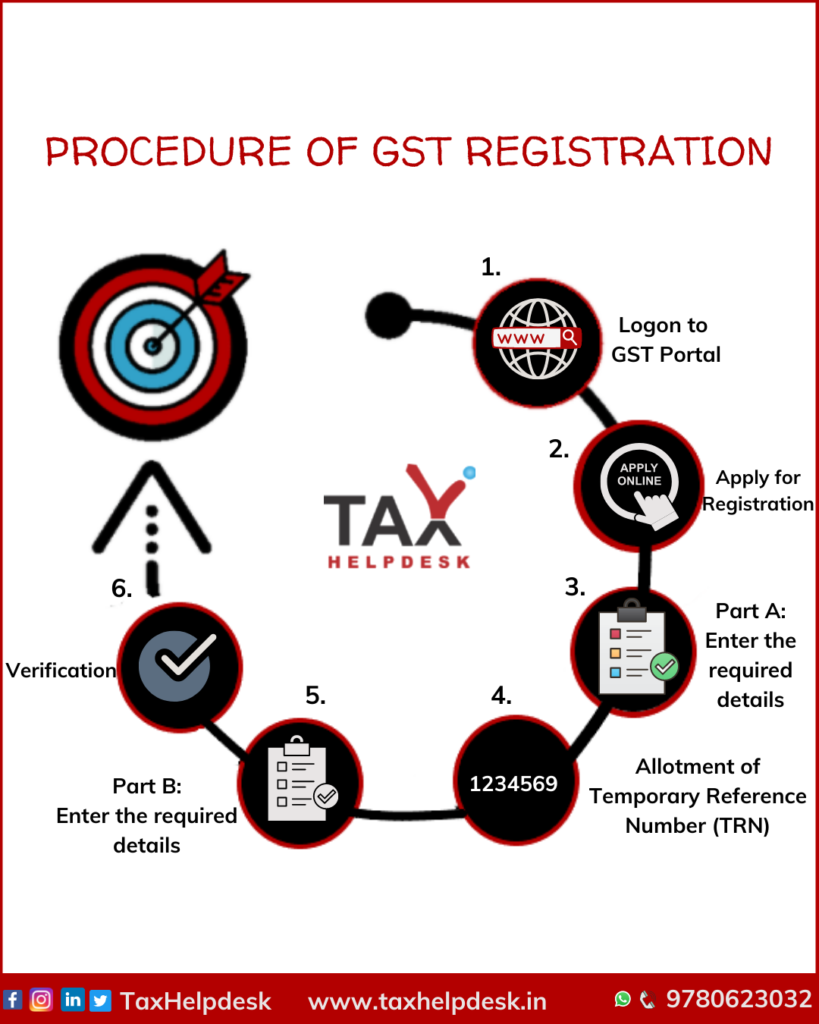Specialist Tips for Picking the most effective GST Registration Services in Singapore
Specialist Tips for Picking the most effective GST Registration Services in Singapore
Blog Article
From Start to Complete: The Ultimate Roadmap to GST Registration for Services Seeking Financial Stability
Browsing the complexities of Goods and Provider Tax (GST) enrollment is an important action for organizations pursuing monetary stability. From comprehending the fundamental principles of GST to adhering to post-registration standards, the process can appear discouraging initially look. Nevertheless, breaking down the roadmap into manageable actions can simplify the registration trip for services seeking to enhance their economic standing. Let's explore the crucial components that make up this utmost roadmap and discover how each stage adds to laying a solid foundation for financial success.
Recognizing GST Basics
Diving right into the fundamental concepts of Goods and Solutions Tax Obligation (GST) is vital for acquiring an extensive understanding of its ramifications on businesses and the economy. GST is a value-added tax obligation imposed on the majority of goods and solutions for domestic consumption. It has changed multiple indirect taxes that existed in the pre-GST era, enhancing the tax obligation structure and boosting simplicity of doing service in India. Under the GST system, both items and solutions are tired at a specific price, which is figured out based upon their classification. Companies are called for to register for GST if their yearly turn over surpasses the threshold limitation set by the government. Input Tax Credit History (ITC) is a substantial feature of GST, permitting services to declare debt for tax obligations paid on inputs, decreasing the overall tax obligation burden. Recognizing the essentials of GST is essential for companies to conform with tax obligation guidelines, manage their funds efficiently, and add to the nation's financial growth by participating in a transparent tax obligation system.
Qualification Standards for Enrollment
To register for GST, businesses need to meet particular qualification requirements established by the federal government. The main eligibility demand is that any type of company involved in the supply of products or solutions with a yearly accumulation turn over above the threshold limitation established by the authorities should register for GST. Since the existing laws, the threshold restriction for GST enrollment is a yearly accumulation turn over of 40 lakhs for companies running within a state, besides unique group states where the restriction is 20 lakhs. Furthermore, particular businesses are called for to sign up for GST regardless of their turnover, such as interstate distributors, informal taxable individuals, and organizations liable to pay tax obligation under the reverse cost system. It is critical for businesses to extensively evaluate their turn over and transaction kinds to identify their GST registration responsibilities precisely. Failure to you can find out more register for GST when eligible can cause fines and legal repercussions, making it necessary for services to abide by the defined eligibility standards.
Files Required for Registration
Having met the eligibility standards for GST enrollment, services have to currently guarantee they have the requisite papers in location to proceed with the registration process successfully. The papers needed for GST registration commonly consist of proof of business constitution, such as collaboration deed, registration certification, or incorporation certificate for different kinds of businesses. In addition, services require to provide files developing the major area of service, such as a rental contract or power bill.
Step-by-Step Registration Refine
Beginning Check Out Your URL the GST registration procedure entails a series of structured actions to make certain a compliant and seamless registration for organizations. The very first step is to go to the GST website and submit the enrollment form with accurate details of the organization entity. Following this, the applicant receives a Short-lived Recommendation Number (TRN) which is utilized to resume the application procedure if it's not completed in one go.
Next, all required documents according to the list provided by the GST portal requirement to be submitted. These documents typically consist of evidence of service enrollment, address and identification evidence of promoters, financial declarations, and organization entity's PAN card.

Post-Registration Conformity Guidelines

Conclusion
Finally, organizations seeking economic stability should comprehend the basics of GST, fulfill eligibility requirements, collect needed records, follow the step-by-step registration process, and follow post-registration guidelines - Best GST registration services in Singapore. By adhering to these actions, services visit this site can ensure conformity with tax obligation policies and maintain economic stability in the future
Additionally, certain businesses are needed to register for GST regardless of their turnover, such as interstate vendors, informal taxed persons, and services responsible to pay tax under the reverse fee device.Having met the eligibility requirements for GST registration, companies should now ensure they have the requisite files in place to continue with the registration procedure efficiently. The records needed for GST registration typically include proof of business constitution, such as partnership action, enrollment certificate, or consolidation certification for various types of organizations. In addition, companies need to offer files establishing the principal area of company, such as a rental contract or electrical power costs.Commencing the GST registration process involves a collection of structured actions to make certain a compliant and smooth registration for businesses.
Report this page